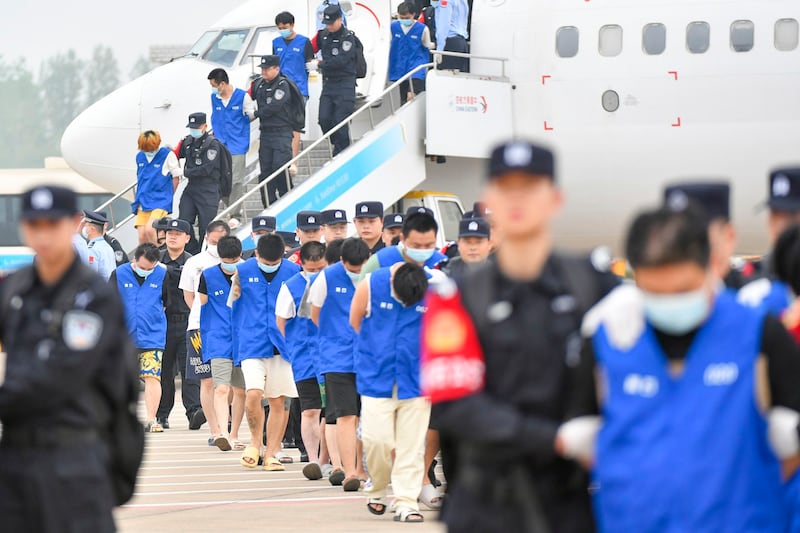Cambodia has deported 130 Chinese nationals suspected of fraud-related activities and illegal online gambling at several sites in Sihanoukville, a seaside resort that has become a hotbed of criminal activity.
The deportations on Saturday followed a raid in early March that resulted in 300 suspects being detained, the China Daily reported.
Law enforcement authorities in Cambodia and China have increased their cooperation in recent years to address the increase in online scams being run out of Sihanoukville, which over the last decade has become a city of Chinese casinos under the influence of Chinese tycoons.

Sihanoukville authorities and Chinese police worked together on last month's arrests, which included the seizure of servers, computers and mobile phones, according to Xinhua. Most of the 300 suspects were Chinese nationals.
The first batch of suspects arrived in China's Hubei province aboard two chartered flights, the China Daily reported, citing China's Ministry of Public Security. More deportation flights to China are expected.
The Interior Ministry announced a campaign to confront online scams in August 2022. Radio Free Asia was unable to contact Interior Ministry spokesman Khieu Sopheak and Sihanoukville Provincial Police Commissioner Sar Ratha for comment on Monday.
The United Nations estimated in a report last year that some 100,000 people in Cambodia have been trafficked and imprisoned by crime rings who force them through torture and threats to carry out online scams. Most of them involve convincing people to invest in bogus investments.

Most of the victims, both on the enslaved scammer side and on the scammed side, are Chinese nationals.
The stories surrounding such trafficking have grown so widespread that they have scared off Chinese tourists – a key contributor to Cambodia's economy. The Cambodian government has responded by blaming the media for negative reports.
China, a close ally of Cambodia’s government, also has an interest in pursuing criminals who have fled from China to Cambodia.
Translated by Sum Sok Ry. Edited by Matt Reed.
